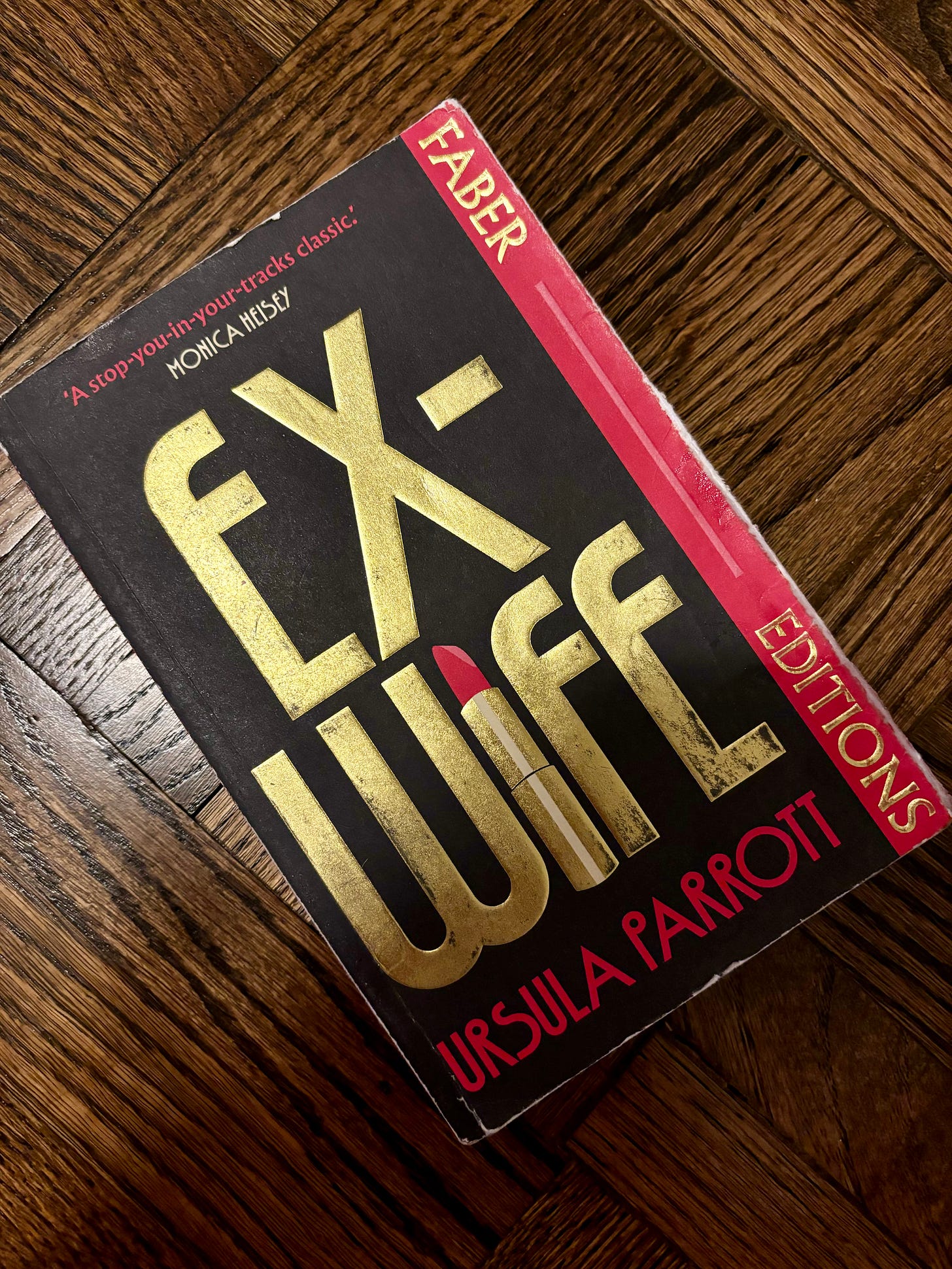In 2009’s The September Issue, André Leon Talley was discussing the state of New York’s fashion scene with Vera Wang. We’ve probably all seen the clip. Clad in sunglasses and a massive fur, Talley cries “it’s a FAMINE of BEAUTY” three times in a row. “Our eyes are STARVING for beauty.” he finishes, with a flourish.
I’ll state the obvious first: “famine” is not a politically correct term to apply to a perceived lack of style in a certain city. But, at the same time, I understand what Talley means. He’s an aesthete—identifying, presenting, and creating beautiful things was his life’s purpose.
Last week, I was early for my Pilates class, so I put my phone away and I was sitting on my reformer, pretending to stretch, but, really, observing my classmates as they trickled in. And every. single. one. was hunched over their phone until the minute class began. The very second class ended, everyone hastily wiped down their machines and headed back to their phones. I did, too. In the elevator back to my apartment, I decided to leave my phone in my bag. The one other person I was with in the elevator? Hunched over their phone. I got to the subway 45 minutes later and, of course: everyone was hunched over their phones. I’m that person, too—hunched over my phone at every opportunity; on the sidewalk while walking, between meetings at work, waiting for a friend at a restaurant. And the only thing I could think of when I started paying more attention to just how many people aren’t looking up was: we all look so stupid. Actually, we all are so stupid. Wasting our lives staring into these 3 x 7 squares instead of looking for and appreciating the beauty that surrounds us.
If we take the dictionary definition of beauty: the quality present in a thing or person that gives intense pleasure or deep satisfaction to the mind…the dearth (let’s use that, instead of famine, shall we? Sorry Mr. Talley) of beauty is obvious. There’s nothing intensely pleasurable, let alone deeply satisfying, about staring at a phone. And, I’d like to posit that Talley would agree that there’s something wholly unglamorous about being immersed in a cell phone instead of engaged with the world.
So, I went in search of antidotes to the dearth. I wanted to re-inject my life with a healthy dose of glamour. I wanted to feel like I was using the internet to learn, instead of numb or hate-read (I could probably write a dissertation on the dreadful LinkedIn-ification of Substack’s harrowing home feed, but today we’re focusing on fixes, not glaring issues). I wanted to be intentional with what I was taking in, instead of mindlessly plugging into podcasts like I normally do (at a certain point, I was averaging something like 10 hours of podcast listening per week). Here’s the content I ~mindfully~ consumed instead:
The Book: Ex-Wife
A few weeks back, my friend Becky handed me a copy of Ex-Wife. Pandora Sykes had written about it earlier in the summer, so it was somewhat on-my-radar, but I hadn’t given it much thought since, given my ever growing TBR stack. But, I’d finished I Love You But I’ve Chosen Darkness, and wanted something a bit more old school. And DAMN if I didn’t get the glamour I was desperately grasping for with this one.
Ex-Wife was published anonymously to much fanfare in 1929, though the author was later revealed as Ursula Parrot. The reasons for anonymity became clear; the book was, allegedly, semi-autobiographical.
The story begins in 1924. Peter and Patricia are young newlyweds living in New York. They’re stylish and modern; Patricia is a fashion copywriter at a department store, Peter a young reporter for the newspaper. Pete regularly steps out on Patricia with other women; but when Patricia does the same one night and tells Pete, assuming she’ll be forgiven—he immediately wants nothing more to do with her.
While they don’t officially get divorced, she spirals her way into a whole new lifestyle. She moves out, and into an apartment downstairs from another fabulous divorcee called Lucia. She ascends in her career at the department store, invests in a new and fabulous wardrobe, goes on countless dates, patronizes speakeasies and late-night diners and, ultimately, learns to live life on her own terms. The story is simple, (Parrot’s daughter describes the work as “women’s magazine, formula fiction stuff” in the book’s afterword, though I’d give it more credit than that), but it’s a pleasure to read and is occasionally poignant. The below passage struck me as particularly relevant this past week — given that so many of us (myself included) are content to sit behind a screen and dispense advice on how to live without actually evaluating whether we’re living ourselves.
“She’d been taught to believe in black and white; right and wrong; vice and virtue…her life had contained no experience to modify her confidence in absolutes.”
And, though Parrot died with an enormous debt and four divorces in her wake, no one could’ve accused her of not living. As her daughter wrote in the afterword of the book:
“My mother lived for a while like the King in the Yeats poem who packed his wedding day with parades and concerts and volley of cannon: ‘that the night come.’ It came for my mother, in ruinous style, but she may have felt that the day was worthwhile.”
It’s an absolutely perfect read for anyone looking to inject their life with a little more vim and a little less doomscrolling.
The Podcast: Talk Easy
My attempted ascent away from mindlessness and towards intentionality continued with my podcast consumption habits. As I said, at a certain point, I was listening to 10 hours of podcasts a week (at least). Granted, some of those podcasts background my long and not-particularly-pretty walk to work. And so, while I did cut a few, one that stayed in the rotation for said walk was Seek Treatment. It isn’t usually a fount of intellectual inspiration (though both hosts are comedic geniuses, the concept of the podcast is that it’s not really about anything), and, serendipitously enough, in last week’s episode, Pat recommended an interview between Zadie Smith (who famously doesn’t own a smartphone) and Ezra Klein where she touches on her relationship with phones. I listened, and Smith says:
The fact of this technology is that it was designed as and is intended to be a behavior modification system. When you wake up in the morning and you turn to your social app, you are being instructed on what the issue of the day is, what to be interested in…I might wake up in the morning and what interests me is an idea I’ve had…but the phone tells me what to think about, where to think about it, and often how to think about it…All mediums modify you…books, media, radio, social life…but the question becomes, who do you want to be modified by and to what degree? And when I look at the people who have designed these things, what they want, what their aims are, what they think a human being is or should be, the humans I know and love, this machinery is not worthy of them.
She also discusses the way we shouldn’t hold people’s online personas — or the fact of social media addiction — against anyone but the people who have created the systems. It’s a great conversation, so great that I wanted more Smith (and will be reading The Fraud ASAP, tell me if you have and what you thought). It’s through this Smith-focused podcast search that I found an even better interview with her, on Talk Easy. Host Sam Fragoso dives so deep into Zadie’s back catalogue that you get a full picture of her life, her work, and how she became the prolific author, essayist, and cultural commentator that she is today. There’s so much wisdom packed in everything Smith says that while, yes, you’ll likely be listening on your phone, it will require your full attention—only chances of hunching over your screen are to rewind for a soundbite.
The Show: Rivals
We’re about to diverge a bit from Zadie Smith, though not totally, since she does admit in her Ezra Klein interview to having been a television addict in her youth. I’m not a television addict, but when I find a show I like, I lock in. And, this weekend, I discovered Rivals, and BOY did I lock in.
Across the pond, Dame Jilly Cooper is a raunchy romance novelist known for writing about rich Brits in the countryside behaving badly—treating their dogs and horses with excessive care while flippantly stepping out on their spouses. Though the traditional term for a rowdy romance is a “bodice-ripper,” Cooper calls her stories “bonkbusters.”
Rivals is a rollicking, ridiculous television adaptation of one of Cooper’s novels, dripping in champagne and glamour. Let me be absolutely clear here: if you only like prestige TV—you will HATE this show. But if you enjoy big 80s hair, unbelievable 80s music (I want to know what kind of budget they were working with, because the soundtrack is insane), shows about professional success, and aren’t too bothered by quite a bit of on-screen ~shagging~, you’ll enjoy it. Spending hours bingeing a show on Hulu may not be the ideal antidote to a life lived within the confines of your phone, but watching the way these characters conduct—even if, like Parrot, the vast majority of their actions are unwise—and enjoy their lives might be just the push you need to get yourself away from the subway platform scroll.
The Newsletter: Julian Philosophy
And, finally, because I’ve done sufficient complaining about the Substack home feed—what I will say is that there still is plenty of incredible content to be found here (just not on my home feed). My fabulous mother-in-law and I share a strong artistic affinity for the Dutch Masters and, this weekend, she forwarded a newsletter called The Art of Painting to me, from Julian Philosophy—he shares regular micro-posts on famous artworks (this week’s being Vermeer’s Art of Painting), with snatches that make me miss doing this type of learning in an art history class.
Deeply satisfying, indeed.








A fabulous post- as always
Just downloaded the Zadie Smith podcast - looking forward to it - thx! 🩵